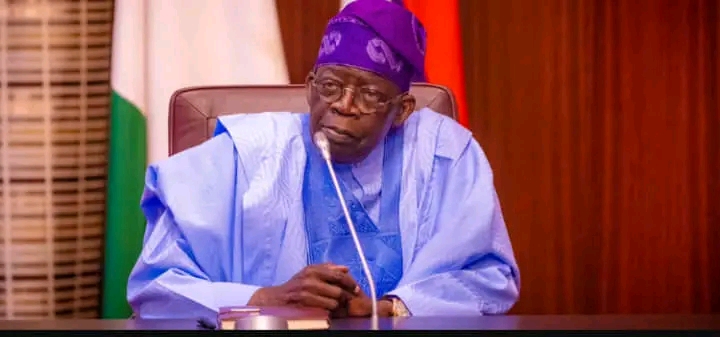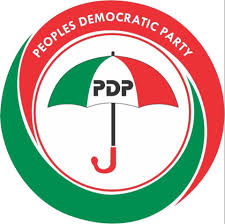The South- South geopolitical zone in the country are allegedly angry with President Bola Ahmed Tinubu over his perceived negligence of the area in the 2025 federal government budget.
President Tinubu had last Wednesday presented a budget of 47.965 trillion Naira to the joint session of the National Assembly for the next fiscal year.
Tagged the budget of “Restoration, Securing Peace and Rebuilding Prosperity”, Tinubu, who, immediately after the presentation, left for Lagos, Nigeria’s commercial capital, allocated various amounts to the different regional development commissions.
Through the instrumentality of the Senate, no fewer than four interventionist agencies, in addition to the current Niger Delta Development Commission, NDDC, have been created by the federal government.
The agencies, which were established and signed into law by either former President Mohammadu Buhari or Bola Ahmed Tinubu, include the North West Development Commission, NWDC, South West Development Commission, SWDC, South East Development Commission, SEDC, and the North Central Development Commission, NCDC.
The bill for the setting up of the South South Development Commission, SSDC, was passed on October 25, 2024, after being withdrawn and represented twice, following heated debate, especially by those opposed to it.
Their argument was that establishing the SSDC, which, according to them, is of equal status with the NDDC, would amount to a duplication of functions, and rather called for increased funding to make the regional body more functional.
But the proponents of the South South Development Commission insist that while the NDDC serves the interest of the nine oil producing states in the country, and perhaps, still counting, the SSDC would, like their peers, cover the developmental needs of the main six states in the region.
The South-South Development Commission bill, which was spearheaded by the Senate President, Godswill Akpabio, was sponsored by Senator Asuquo Ekpenyong and co-sponsored by other 17 Senators from Akwa Ibom, Bayelsa, Cross River, Rivers, Delta and Edo States.
Two months after the passage of the SSDC, the bill is yet to be assented to by President Tinubu, giving room for serious concern and agitations by the senators and other impacted people of the South South region.
They expressed worry that the delay by the President to sign the bill into law might pose a dangerous signal and could heighten tension in the area, considering, especially that the other regional commissions have either commenced operations or are gearing for business.
According to some concerned youths from the Ijaw extraction, any attempt by the presidency or whosoever to politicise the development of the six regional states through the SSDC would be stoutly resisted
Contributing to the President’s budget on the floor of the Red Chambers, Senator Henry Seriake Dickson frowned at the non budgetary provisions for the SSDC in the President’s fiscal appropriation bill for next year.
Drawing his colleagues’ attention to the monetary provisions in the budget for the other recently established development commissions in the country, Senator Dickson, representing Bayelsa West senatorial district, wondered why the same provision was not made for the SSDC.
While ruling out deliberate omission of budgetary provision for the SSDC, the Senator who was a two-term governor of Bayelsa state called for an urgent redress of the imbalance so that the President’s good intentions would not be misinterpreted.
As a way out, Senator Dickson advised the federal government to sponsor a supplementary budget for 2025, where the commission could be reflected to give the people of the South South geopolitical zone an equal sense of belonging.
In the words of the erudite Senator, “I also brought to the attention of the executive that funding for all other development commissions was provided in the budget, except for the South-South Development Commission. This omission, perhaps, due to the commission’s pending assent, needs to be addressed. It is my hope that this will be corrected before the budget comes into effect or the supplementary appropriation is made to correct this early next year. ”
On the general principles of the budget, he commended the prioritising of its critical areas such as strengthening the security forces, investing in education, infrastructure, and health care, but opted for closer scrutiny of some aspects of the budget, though wearing an optimistic outlook
The SSDC bill, like other previous bills, now laws, has the mandate to receive and manage funds from the federation accounts allocation committee, FAAC, and other sources, including donations, grants, aids for the integration, development, resolution of infrastructural deficit, militancy, communal crisis as well as tackle the ecological and environmental problems within the region.
It would be recalled that the passage of the SSDC bill came about 24 hours after the federal executive council, FEC, renamed the Niger Delta Ministry as the Ministry of Regional Development, specifically to oversee the NDDC and the All the development commissions in Nigeria’s six geo-political zones.
It is expected that some of the social vices, including large-scale corruption, political intrigues, and inefficiency that had plagued the 24-year existence of the NDDC, would be checkmated in the new regional interventionist agencies.
Prior to the assumption of office by the current management of the NDDC led by Dr. Samuel Ogbuku, variously described as a trained technocrat who knows his onions, most of the projects executed by the commission were either substandard or abandoned because of the man-know-man syndrome.
Late this year, the NDDC held a stakeholders Summit during which Dr. Ogbuku, its chief executive, lamented that the interventionist agency was indebted to its contractors to the tune of about three trillion Naira and pleaded for increased funding to the commission.
Out of the three trillion Naira outstanding contractual debts, the Southern Examiner investigation reveals that the commission, based on the approval by President Tinubu, has sourced and secured one trillion Naira with which it was able to offset part of the bill.





























